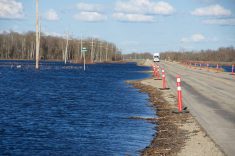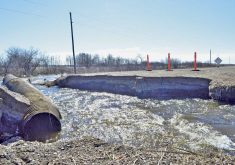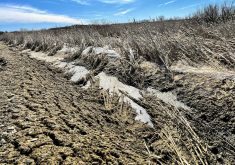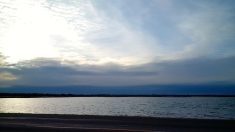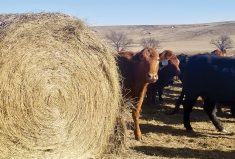Flood-impacted Manitobans will not have to pay to ensure their water is safe to drink.
The province has announced a four-month period in which water testing fees will be waived for owners who had flooded wells and cisterns. Free tests are only available through Winnipeg’s Horizon Lab Ltd., until Aug. 31.
Manitoba Environment and Climate Minister Kevin Klein made the announcement May 8.
Read Also

KAP flags risky trade for Manitoba farmers
Tariffs, market access uncertainty, trade diversification and export infrastructure top the agenda at Keystone Agricultural Producers (KAP) annual meeting.
“Our government is helping ease some of the financial burden for Manitobans affected by flooding by fully subsidizing water testing costs,” he said.
The province is also warning Manitobans not to drink from sources they believe to be contaminated, as floodwater may bring in bacteria or other harmful foreign matter.
Homeowners who suspect their well or cistern has been affected by flooding should boil drinking water before consumption, the province has said.
“Public health encourages everyone with a private water system that has been affected by flooding to test their water once flood waters recede to ensure their drinking water is safe during a season of elevated risk,” said Dr. Brent Roussin, chief provincial public health officer. “Preventing the risk of waterborne disease is important and the province wants well and cistern owners to take steps to protect themselves.”
Homeowners may have a contamination problem if water suddenly has a different taste, odour or appearance, or if test results note an issue. Water pooling around a well head or collecting around other nearby wells should also be a red flag.
Shallow wells and aquifers are at greater risk for contamination, according to safety documents published by the Government of Manitoba. So are water sources where the overlying soil is sand or gravel, because those soils are more permeable to floodwater.
Any wells located in pits or depressions are at higher risk, as are water sources close to rivers or other waterways.
The same provincial safety materials warn that nearby barns or septic fields, old, unsealed wells and quarries also pose risks.
Well casings should be in good condition and extend 30 centimetres out of the ground.
Even if water sources are not impacted by flooding, the province advises all homeowners to test their water at least once a year.
Manitobans with questions about the sample collection process, shipping or test results should contact 204-488-2035. Information is also posted on the Government of Manitoba website.



